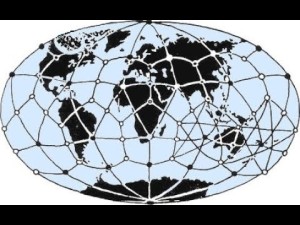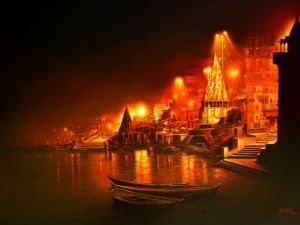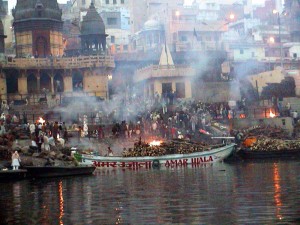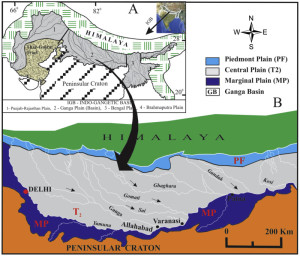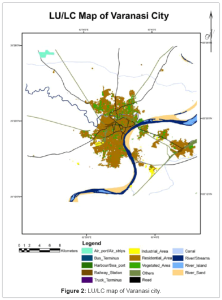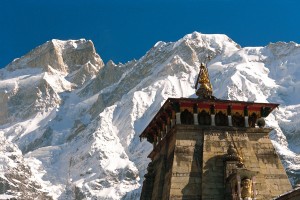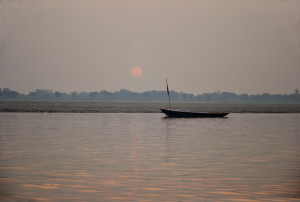Some places are more sacred than others, and this is what makes them a node in the paths of pilgrimages. In India they are called “tirtha”, which means ford or crossing. How does Fengshui interpret them?
A place of power is one in which you can “go through”, that is, pass from ordinary reality to other dimensions. A “tirtha” makes this possible because it is a node, or intersection, in the web of creation, through which a particularly large number of threads is pulled. Each thread is another perspective on the whole, so a sacred place can connect us to many levels of the supreme reality (from “Travels through sacred India” by Roger Housden).
Varanasi is a very powerful “tirtha” and the millenary tradition of this sacred city is a very precious example for Feng Shui, as its geographical position can be analysed to draw useful lessons on how the morphology of the territory can influence history and the development of a town, in this case of great religious importance not only for India but for the entire planet.
Varanasi or Benares is one of the oldest cities not only of India but of the whole world, its foundation is estimated to date back at least 3,500 years ago. It is located at the confluence of two rivers, Varuna and Asi, with Ganges, which precisely here slows down its course forming loops among which the most famous is the left bank where there are numerous “ghat”, stone ramps that allow sacred bathing and where according to the Hindu religion it is possible to escape the “samsara”, the endless chain of deaths and rebirths.
Undoubtedly, since over the centuries millions of Hindus have gone to die in Benares, this is a very powerful energy induction factor for the creation of a “tirtha” perhaps unique in the world, a passage to the “Underworld” that can be explained according to Feng Shui. How?
Varanasi is located at the centre of the only great alluvial plain of India, located south of the Himalayas and north of the great block (craton) of very ancient geological materials that make up a large part of the Indian peninsula and act as a barrier to the flow of the rivers that descend from the mountain range to the south. This is the reason why Ganges bends towards the east and then flows into the sea where it no longer finds obstacles, that is in the alluvial plain of the Gulf of Dacca.
The position of Varanasi is therefore connected to the extremely powerful water energy that flows from the highest chain in the world and flows slowly into the plateau of Utter Pradesh, further slowing along the great bend that reverses the direction of the Ganga towards the north, so as to return to the origins. Furthermore, Benares cannot refer to the classic Feng Shui horseshoe protection with the reliefs that protect the flow of water all around the Xue (= Dragon’s nest or den). Varanasi is surrounded by waters and so it follows an absolute prevalence of its energy, which explains the extraordinary spiritual development of this site and its deep connection with the Underworld.
We can therefore state that the Qi of Varanasi is made up of a very powerful Water Dragon that originates from the Himalayan Mountain Dragons, about 400km away from the city. A unique cycle in the world that allows on one hand to be extremely close to Heaven thanks to the peaks that exceed eight thousand meters and on the other it allows to reach the bowels of Earth thanks to the Ganges-Dragon veins.
